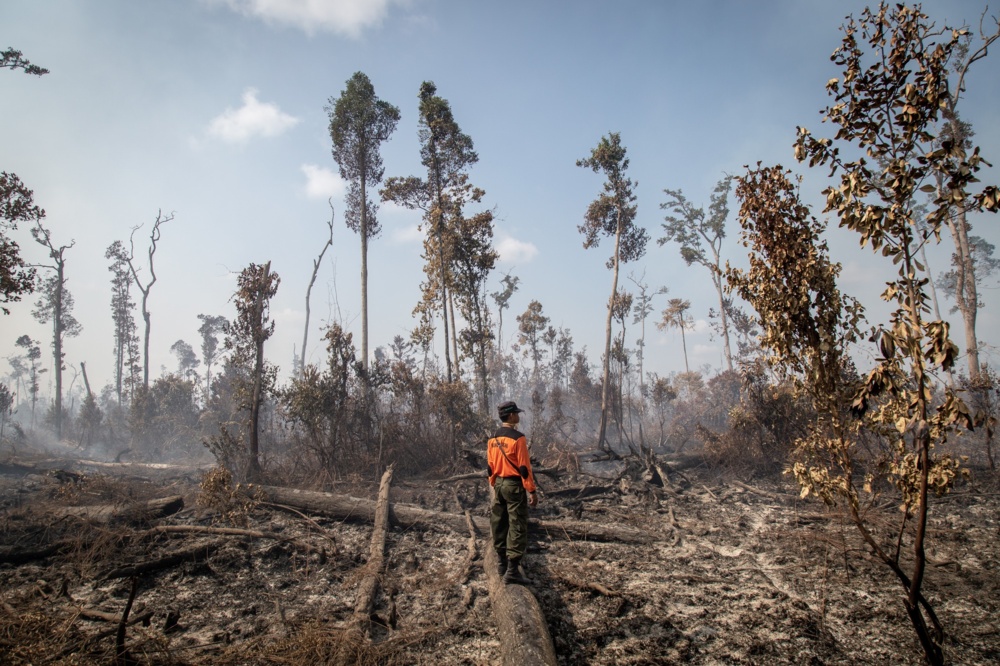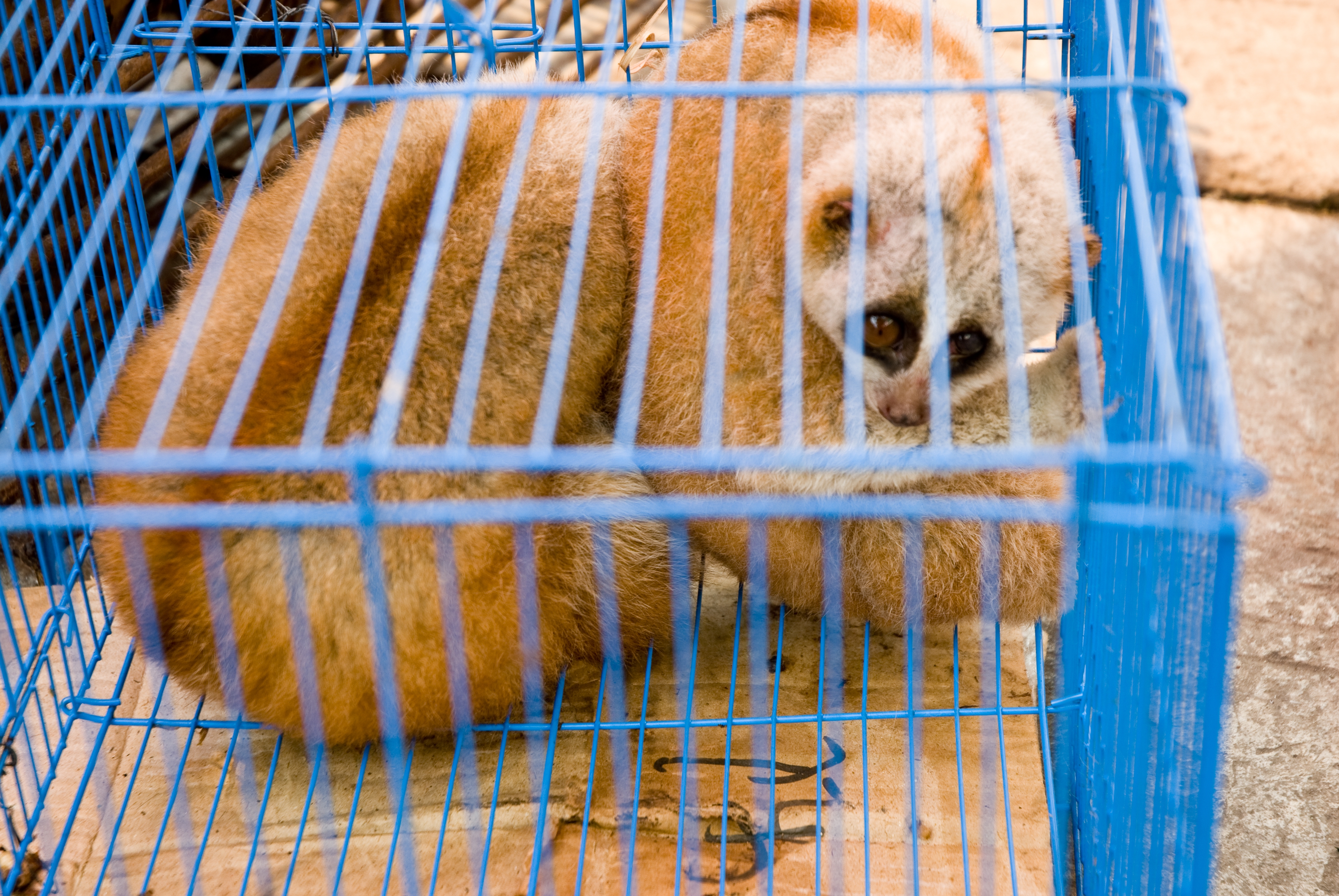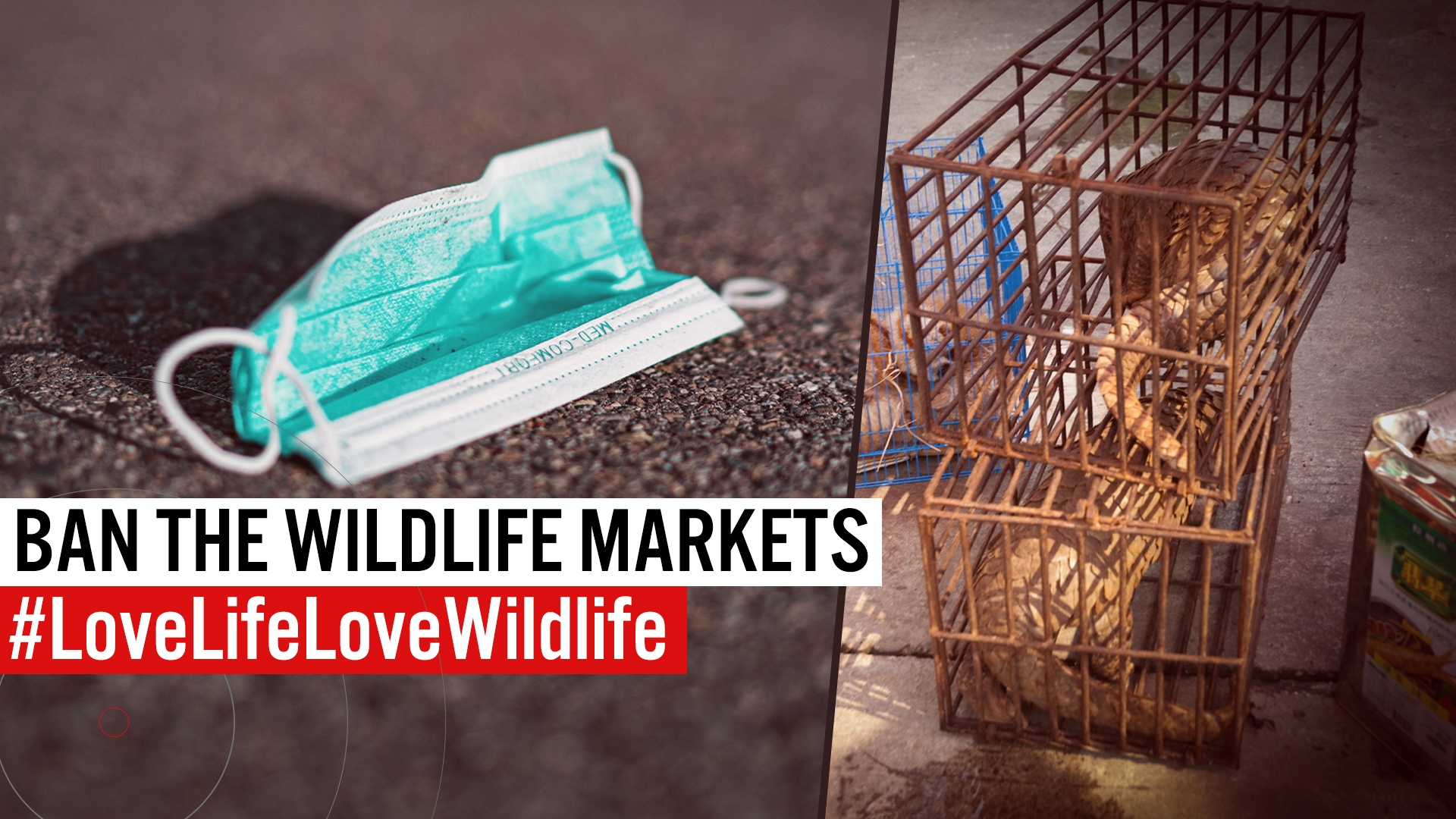
Restrictions on commercial wildlife markets tighten: are they enough to stop another Covid-19?
Throughout history, pandemics have arisen from human activities that destroy nature and Covid-19 is just the latest. Some steps are being taken to prevent another pandemic coming from commercial wildlife markets, but they are piecemeal and too weak to ensure safety.
- Sign our petition to ban commercial wildlife markets worldwide.
Nearly two-thirds of emerging infectious diseases affecting humans have a wildlife origin. Covid-19 is just the latest. As we bring ever more animals into closer proximity to us in commercial wildlife markets and factory farms, and destroy forests and other habitats, we create more and more opportunities for diseases to jump to humans.
Banning the sale of wildlife at commercial markets is a crucial step to protect our health, global economy and planet – and the world is slowly waking up to that. Policy in China is developing to mitigate these risks, but is it enough?
Progress to date
1st January 2020
Huanan Seafood Wholesale Market in Wuhan, China (thought to be the source of the Covid-19 outbreak) was closed. Despite its name, this market reportedly sold many other animal species including live wolf pups, snakes and civets.
22nd January 2020
A few weeks after the closing of the first market, all live animal trade was banned at markets in Wuhan.
26th January 2020
China imposed a temporary nationwide ban on the buying, selling and eating of wildlife, intended to remain in place until the epidemic (the disease was not yet a global pandemic) was declared over. Following this announcement, a crackdown mission began and it was recently reported that Chinese authorities shut down 20,000 illegal farms raising livestock ranging from peacocks to porcupines.
24th February 2020
China’s temporary ban was made permanent, shutting down the wildlife farming industry. There are significant limitations to this ban, however as it is currently unknown which species are protected by it and there are considerable loopholes.
20th May 2020
Authorities in Wuhan officially banned the eating of all wild animals with a vision of the city becoming a “wildlife sanctuary”. However, at present, the ban only lasts for five years and does not apply to wild animals bred for fur or traditional medicine. Similar, but permanent, bans have been made in other Chinese cities including Beijing.
9th June 2020
China removed pangolin scales from its list of approved ingredients in traditional medicine.
Small print, exemptions and gaps: why more action is needed
The nationwide ban in China may seem like cause for celebration however, there is some important small print to consider. For instance, only wild animals of “important ecological, scientific and social value” and those already protected by the state are forbidden to consume. So far, the full list of species included under this new ban remains unclear. What we do know is that the ban will not apply to all wild animals and there are likely to be far too many exceptions.
The measures offer a loophole whereby live animals may be sold as pets, potentially concealing the true intentions of buyers. The sale of wild animals will also be permitted for medicinal purposes, supposedly subject to quarantine and inspection. It is yet to be determined how such practices will be implemented at scale.
The current ban gives the impression of a tightening of the regulations, but the extent in reality of this policy is uncertain and it raises a lot of questions. From the details, it seems unlikely that it will effectively protect all species that are exploited for consumption, traditional medicine or for use as exotic pets. Moreover, opportunities for disease to spread from wildlife to domesticated animals and humans will still exist.
Another issue with these partial bans is that they may act largely as a publicity stunt with little or no effort being made to implement them. For example, in March, the Vietnamese government announced it would draft measures to restrict wildlife trade and consumption from April 1st. However, since that date, no drafts have been made publicly available and NGOs have raised concerns that the government is no longer prioritising wildlife as it previously promised.
Next steps
Much of China’s wildlife trade is already illegal, yet trafficked species still end up on sale at commercial markets, and many of the issues lie in poor regulation and ineffective deterrents. Existing enforcement measures contain too many exceptions and legal loopholes. We need more comprehensive bans that are designed to protect all wildlife – and humans – permanently. EJF is calling for a lasting ban on commercial wildlife markets, a sentiment echoed by the UN biodiversity chief, who has recommended a global ban in order to prevent future pandemics.
In recent years, EJF has campaigned to protect forests and fight climate change. Covid-19 shows us that protecting our natural world is now more important than ever. To protect us, ecosystems must not only function, but thrive without interference or destruction.
EJF envisions a world where nature is restored, guarded and loved. We cannot afford to return to the ‘business as usual’ which has caused so much damage. We must use this time as an opportunity to create a more sustainable future which prioritises people and planet over profit.
SIGN UP FOR OUR EMAILS AND STAY UP TO DATE WITH EJF

